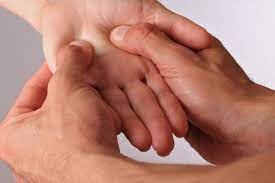Acupressure Benefits for Mind and Body: A Holistic Approach to Health
Acupressure, an ancient healing practice, utilizes the power of touch to promote holistic well-being. By applying gentle pressure to specific points on the body, acupressure aims to restore balance and alleviate various ailments. From pain relief to stress reduction, this centuries-old technique offers a natural and effective way to enhance both physical and emotional health. Please keep reading for details on the following topics:
Indications for Acupressure
Precautions for Acupressure
Contraindications of Acupressure
Complications of acupressure
A form of alternative medicine

Indications for Acupressure
- Pain: This can help alleviate various types of pain, including headaches, back pain, menstrual cramps, and joint pain.
- Constipation: Applying pressure to specific acupoints can stimulate bowel movements and relieve constipation.
- Anxiety: It may help reduce symptoms of anxiety by promoting relaxation and calming the mind.
- Difficulty sleeping: By targeting certain pressure points, acupressure can improve sleep quality and aid in falling asleep faster.
- Nausea: It is often used to alleviate nausea and vomiting, particularly in conditions like morning sickness or motion sickness.
- Fatigue: Stimulating energy points can help combat fatigue and increase vitality.
- Stress and tension relief: It promotes relaxation and helps release tension, making it effective for managing stress-related symptoms.
Precautions for Acupressure
- It should be performed by a trained and licensed practitioner to avoid injury or ineffective treatment.
- Inform the acupressurist about your complete health history, including any existing medical conditions, medications, or allergies, to tailor the treatment accordingly.
- To minimize discomfort during the procedure, avoid overeating before a session.
- Refrain from consuming alcohol or caffeinated products just before the treatment to prevent dizziness or palpitations.
- Wear loose and comfortable clothing to allow easy access to the points and ensure a relaxed experience.

Contraindications of Acupressure
- Pregnancy: Pressure on certain points may stimulate uterine contractions and potentially induce preterm labor. Pregnant individuals should consult with a healthcare provider before undergoing acupressure.
- Heart Disease: It may cause a sudden drop in blood pressure, which can be risky for individuals with heart conditions. It’s important to seek medical advice before undergoing acupressure if you have heart disease.
- Recent Stroke: Individuals who have experienced a recent stroke should avoid the procedure, as it may interfere with their recovery process or exacerbate neurological symptoms.
- Open Wounds or Skin Damage: Acupressure should not be performed over areas with open wounds, cuts, or severe skin damage to prevent infection or further injury.
- Fractures or Sprains: Applying pressure near areas with bone fractures or severe sprains can worsen the injury or cause additional discomfort. Acupressure should be avoided in such cases.
- Tumors or Growth: Pressure applied to areas with tumors or growths may aggravate the condition or interfere with ongoing treatment. Avoid acupressure over these areas unless directed by a healthcare professional.
- Varicose Veins: Pressure on varicose veins can increase the risk of complications such as bleeding or blood clots. It’s advisable to avoid pressure over varicose veins.
- Bleeding Disorders: Individuals with bleeding disorders or taking blood-thinning medications should avoid the procedure to prevent excessive bleeding or bruising.
- Bone Diseases: It may exacerbate symptoms or complications associated with certain bone diseases. Consult with a healthcare provider before undergoing acupressure if you have a bone-related condition.
- Severe Swelling: This should be avoided over areas with severe swelling, as it may worsen inflammation or cause discomfort.
Complications of acupressure
Disclaimer: The information provided in this content is for general informational purposes only. It is not intended as medical or healthcare advice, diagnosis, or treatment. Always seek the advice of a qualified healthcare professional with any questions you may have regarding a medical condition or healthcare decisions.

